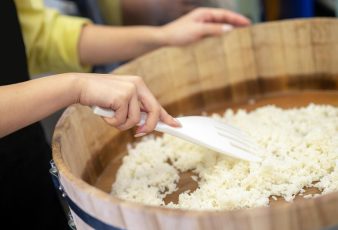Food expiration dates say everything regarding the safety and quality of your food items. However, understanding the dates of expiration is a little complex.
Ultimately, it leads to unnecessary waste or, worse. It also leads to the consumption of spoiled food.
This article aims to demystify food expiration meanings, including food expiration dates.
Moreover, it helps provide a clear idea of how to properly interpret them to make the most informed decisions regarding food waste and what to keep and discard.
Understanding The Basics

Food expiration dates are labels that are placed on food products by manufacturers.
The ultimate aim of it is to indicate the recommended timeline for consuming this food item at its peak quality.
These dates help both the consumers and retailers to determine the freshness and safety of the food products.
Different Types

There are different types of expiration dates commonly found on food packaging:
“Sell By” Date: This date is primarily intended for the consideration of the retailers. It indicates the last day of selling the food products to teh consumers.
However, it doesn’t necessarily denote the food is no longer safe after the date of expiration.
“Best By” or “Use By” Date: These dates suggest the peak quality or freshness of the product. While you can consume the food safely after this date, its flavor and texture may begin to degrade after expiration.
“Expiration” or “Use Before” Date: This date signifies the last day the manufacturer guarantees regarding the safety and quality of the food. Consuming food after this date can be risky from a health’s point of view.
Understanding “Use By” And “Best By” Dates

It’s essential to differentiate between “Use By” and “Best By” dates:
“Use By” Date: This indicates the last day the product is at its peak quality and safety. Consuming the item after this date may pose health risks.
“Best By” Date: This suggests the date by which the product is expected to retain its optimal quality, such as flavor and texture.
While it’s ideal to consume the item before this date, it’s usually safe to eat afterward, albeit with potential changes in taste or texture.
The Truth Behind Expiration Dates
Contrary to popular belief, many foods remain safe to consume after expiration. These dates are often conservative estimates provided by manufacturers to ensure maximum freshness and quality.
However, proper storage and handling significantly influence a food item’s shelf life.
Factors Affecting Food Shelf Life
Several factors can affect the food’s shelf life, including:
Storage Conditions: Proper temperature, humidity, and packaging can extend the shelf life of perishable items.
Food Type: Certain foods, such as dairy and meats, are more perishable than others and require closer attention to expiration.
Handling: Improper handling, such as cross-contamination or exposure to contaminants, can accelerate spoilage.
Signs Of Spoiled Food
Regardless of the expiration date, it’s crucial to inspect food for signs of spoilage before consumption. Common indicators include:
Unpleasant Odor: Foul or rancid smells often indicate microbial growth or decomposition.
Visible Mold: Mold growth on food surfaces suggests spoilage and potential health risks.
Change in Texture or Color: Discoloration, sliminess, or texture changes may signify spoilage.
Extending Shelf Life Safely
While it’s essential to respect expiration dates, several strategies can help extend the food’s shelf life:
Proper Storage: Store perishable items according to packaging instructions, such as refrigeration or freezing.
Food Rotation: Use the “first in, first out” method to ensure older items are consumed before newer ones.
Preservation Techniques: To prolong the shelf life of perishable foods, use methods like Canning, pickling, or vacuum sealing.
Different Ways Through Which You Could Save Yourself From Food Wastage
Many buyers are still not aware of the waste of food. As a result, they have to suffer physically.
Again, when there is redundant food wastage, it leads to an increasing budget. But, the matter of most concern is waste. If you look at the value of food wastage, then you will be perplexed and overwhelmed.
In China, food wastage amounts to a massive 91.65 million metric tonnes per year. India follows China with a value of 68.76 million metric tonnes.
Hence, the figures are enough to evoke shivering among people with awareness. Moreover, the statistics suggest catastrophic repercussions in the days to come.
Hence, as an aware buyer, you must be mindful of the expiration dates of food. Therefore, we dedicate this section to understanding the different ways through which you can bring in measures to stop food wastage.
Buy Only What You Need.
One way to fight food expiration dates is to buy in a limited amount. If you buy in a limited amount, you know you will finish it off within less time. Hence, you can save yourself from insensate food damage.
Pick The Ugly Fruits And Vegetable
One of the great secrets to counter expiration dates on food, especially vegetables, is buying the most ugly-looking fruits and vegetables.
Yes, no one will tell you this, believe us! You will often see oddly colored vegetables and fruits.
Moreover, you may see that they are dull-colored. Do not worry; they taste the same! They are both healthy, and they taste the same. So, add them to your shopping cart. It will save waste.
Stor Foods Wisely!
One great way to store food is wisely. When you consider food’s expiration dates, this approach can help prevent food wastage.
You could follow this very approach here. Just keep the food whose expiration dates approach near, that is, the older one at the front of your refrigerator. It is a great way to preserve quality and prevent waste.
Moreover, you can use different airtight containers to keep your food fresh inside the fridge.
Understanding The Food Labelling
There is a huge difference between the “best before” and “use by” dates. Sometimes, it can be safe to consume the food even after the “best before” date.
But you can not do the same with the “use before” ones. This is how you can select from two.
However, you must try to select the former ones. Yes, its a great way to preserve food and most importantly, prevent wastage.
Put Your Food Waste To Use
We tend to throw away some parts of the vegetables and other food items as scraps. But it’s always better to use them even after throwing them.
However, one of the effective ways to store food and vegetables is to make compost. You could use it in your kitchen garden.
Support Local Food Producers
One more effecgie way to combat the conundrum of expiration dates on food is to source it from local producers. Local producers are always mindful of providing the best quality.
Conclusion: Making Informed Decisions
Navigating food expiration meanings, including dates, requires a balance between caution and practicality. However, by understanding the different types of dates, factors influencing food shelf life, and signs of spoilage, consumers would know when to extend the life of food and when to dispose of it.
Moreover, with proper knowledge and diligence, you can minimize food waste while prioritizing safety and quality in your diet.
Learn More About:





























